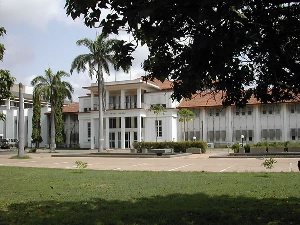Accra, July 24 (Public Agenda) -- A silent majority of the Members of Parliament of the ruling New Patriotic Party (NPP) say the incessant fuel price increases could cost them their seats if fresh parliamentary elections were held today.
This is because of the public anger that greeted last week’s increase in the price of petroleum products, the third in seven months since the beginning of the year. Some NPP MPs confided in this reporter that they cannot openly express their views on the price hikes for fear of being tagged as moles in the party.
The only exception is the no-nonsense MP for Assin North, Mr. Kennedy Ohene Agyapong, who last Friday openly criticized his government over shirking its responsibility to the people by allowing market forces to dictate the prices of petroleum products.
By taking this bold step, Agyapong has become the lone voice in the ruling party calling on his government to put the brakes on further price increases. Mr.Agyapong points out that the National Petroleum Authority (NPA) was making the government unpopular through constant increase of fuel prices. In his view, it would be politically suicidal in the long run for the government to allow market forces of demand and supply to continue to dictate prices. According to him, even in the most advanced market economies; governments sometimes take intervening measures to alleviate the plight of the poor and the vulnerable.
He consequently called for a reduction in the number of tax build up in the fixing of the prices of petroleum products and promised to join the Wahala demonstration next time the organizers call their supporters onto the streets. Last week the NPA gave the Oil Marketing Companies (OMCs) the green light to sell petroleum products at new prices. A gallon of petrol now sells at an all time record of ¢42,160.00, a little lower than the ¢45,000.00 the OMCs had demanded of the NPA. Diesel now sells at ¢38,259.00 a gallon, an increase of ¢3,614.00. In all, the new increases represent a 10% rise in the price of petroleum products.
Commenting on Mr. Agyapong’s remarks in an interview with the Public Agenda, Mr. Joe Baidoe-Ansah, the MP for Effiah-Kwesimintim and Deputy Minister for Tourism and Diasporean Affairs, disagreed with the former on his call for tax reduction since that approach will in the long run affect the Consolidated Fund, from which development project are financed.
“Salaries of doctors, teachers, nurses, civil servants and all other public sector workers will be affected. Building of infrastructure such as roads, schools, hospitals, among others will adversely be affected. These are all funded from the Consolidated Fund,” he said.The deputy minister argued that the call on the government to subsidize the price of petroleum products in order to relieve the poor is misplaced since subsidies rather favour the rich. He suggested that the long-term solution is for the entire country to begin to think about alternative sources of energy to petroleum. The NPA is only into its second year since its establishment and people are already calling for its abolishment as they consider it to be counter-productive to the very ends for which it was set up: to shield the consumers from arbitrary increases in prices of petroleum products through the regulation of the activities of stakeholders of the industry. But experts in the industry do not share that view. They say it is ill-advised and an over simplification of the issues. The recent price hike was triggered by trouble in the Middle-East between Israel and Hezbolla, based in Lebanon. The ongoing war has negatively affected world crude oil supply.
Politics of Monday, 24 July 2006
Source: Public Agenda

















